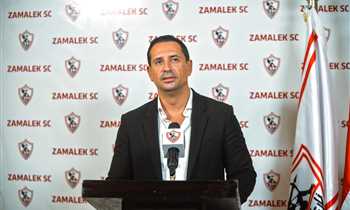
Another failure for the Three Lions
English media came out kicking on Thursday following their national team’s failure to advance to the Euro 2008 finals after losing at home to Croatia 3-2 in their final qualifier.
England coach Steve McLaren and his players were booed off the pitch by a 90,000-strong capacity crowd at the Wembley Stadium.
"It is an indescribable pain," McClaren said after the game. "There is so much expectation, both from the fans in the stadium and the people watching on TV at home.
"We have let them down. We know what they are feeling - we are feeling exactly the same.
"I take responsibility. Ultimately, I said judge me over 12 games. We deserve to be where we finish and we have not deserved to qualify. That is my responsibility," he conceded.
TO QUALIFY OR NOT TO QUALIFY
Some people might ask, what’s the big fuss? Does England really deserve to showcase in every major football competition?
England FA chairman Geoff Thompson summed it up after deciding to sack McLaren on the eve of the defeat.
"Of course we have no divine right to play in major tournaments, but it is quite right that qualification is expected," said Thompson.
No one can deny that England is the cradle of the game, but as an editorial in The Sun newspaper put it: "England taught the world how to play football. Sometimes it seems we've forgotten how to do it ourselves."
"This really was the greatest embarrassment any of us could recall," the Sun’s chief sports writer Steven Howard wrote.
The country that set most of the modern codes for the game has barely made a notable achievement in the sport.
The Three Lions won the World Cup only once in 1966 on home soil. They also failed to go past the semi-finals at the European Championship since its inauguration in 1960, which takes us to another question; why is there a big hype about England in the first place?
The answer two this question is summarized in two points: A strong competition and very powerful media.
Over the years, the English Premiership has been a hub for world class players from across the globe. It is almost every footballer’s dream to play in England which houses some of the world’s household names like Manchester United, Liverpool and Arsenal among others.
This strong competition has been built around one of the strongest and celebrated media empires in the world.
This combination, along with the historic roots of the game in England, helped create a very strong football culture.
STRONG FOOTBALL CULTURE
"It will be a summer without seeing the flags out in the streets and seeing the atmosphere around England, and that's going to be devastating for the country," former England captain David Beckham said.
"We all know there are more important things than football in the world, but for us not to qualify for a competition it's a huge, huge thing," added the global football icon.
Beckham’s sentiment reflects the situation in England and the huge repercussions that will result from the Euro 2008 exit.
"A successful run to the 2008 final would have led to a £2bn bonanza for the economy," said Simon Chadwick, professor of sport business strategy and marketing at Coventry Business School was quoted as saying by BBC.
But now, sports retailers Sports Direct and JJB Sports, in addition to England's kit manufacturer Umbro, saw their shares fall between 3.7 and 17 percent following Wednesday’s defeat.
England’s exit will negatively impact ad revenues, major sponsorship deals, brand tie-ins, TV rights, kit sales and marketing promotions across the country.
Alex Fynn, the former director at Saatchi and Saatchi and a football industry consultant, told The Daily Telegraph: "The knock-on for the whole game is very significant.
نرشح لكم
 بسبب أحداث دربي العاصمة.. وزارة الداخلية الإيطالية تقرر منع إقامة المباريات "عالية الخطورة" ليلا
بسبب أحداث دربي العاصمة.. وزارة الداخلية الإيطالية تقرر منع إقامة المباريات "عالية الخطورة" ليلا
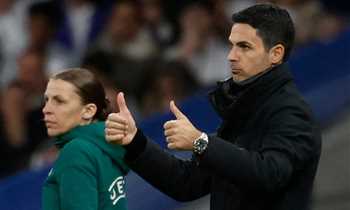 أرتيتا: وجودي هنا بفضل جوارديولا.. واتصلت به صباح مواجهة ريال مدريد
أرتيتا: وجودي هنا بفضل جوارديولا.. واتصلت به صباح مواجهة ريال مدريد
 مواعيد مباريات الخميس 17 أبريل 2025.. كأس عاصمة مصر والدوري الأوروبي
مواعيد مباريات الخميس 17 أبريل 2025.. كأس عاصمة مصر والدوري الأوروبي
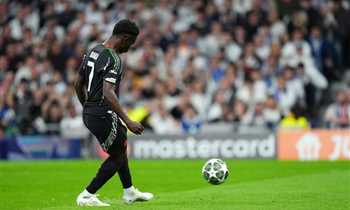 ساكا: فخور للغاية بهذا الفريق.. وكنت واثقا من قدرتي على التسجيل ضد ريال مدريد
ساكا: فخور للغاية بهذا الفريق.. وكنت واثقا من قدرتي على التسجيل ضد ريال مدريد
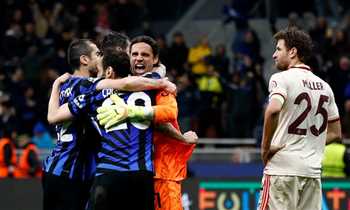 مولر: بذلنا قصارى جهدنا أمام إنتر.. ولا يهمني ما سيحدث مستقبلا
مولر: بذلنا قصارى جهدنا أمام إنتر.. ولا يهمني ما سيحدث مستقبلا
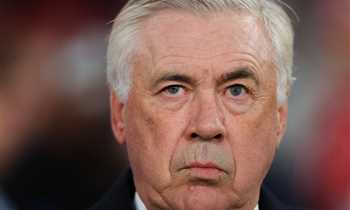 أنشيلوتي: أرسنال استحق الفوز ويجب أن تبقى رؤوسنا مرفوعة.. وننافس على 3 بطولات أخرى
أنشيلوتي: أرسنال استحق الفوز ويجب أن تبقى رؤوسنا مرفوعة.. وننافس على 3 بطولات أخرى
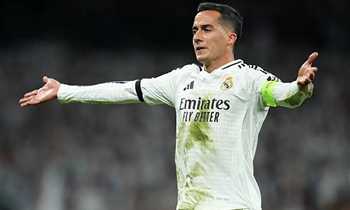 فاسكيز: أرسنال جاء ليدافع.. وريال مدريد سيعود أقوى
فاسكيز: أرسنال جاء ليدافع.. وريال مدريد سيعود أقوى













 في مئويته مع سانتوس.. نيمار يغادر مواجهة أتليتكو مينيرو باكيا بسبب الإصابة
في مئويته مع سانتوس.. نيمار يغادر مواجهة أتليتكو مينيرو باكيا بسبب الإصابة

